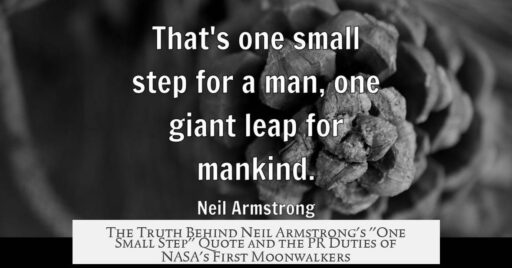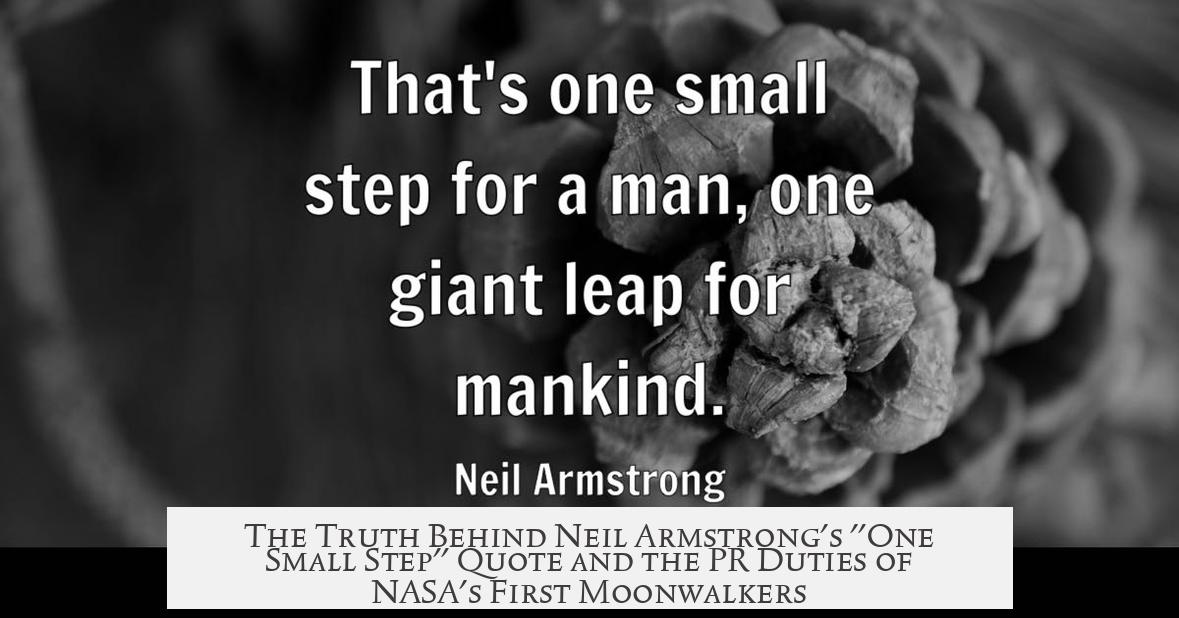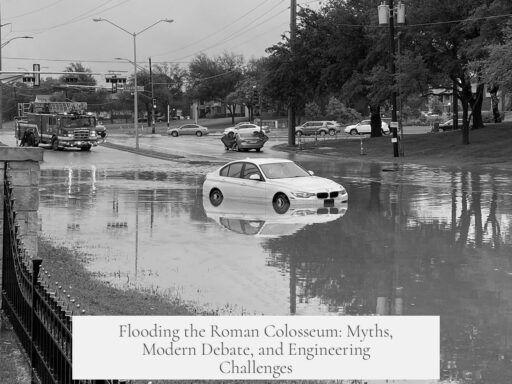Neil Armstrong’s famous phrase, “That’s one small step for [a] man, one giant leap for mankind,” was essentially his own creation, though he did receive advice from NASA and public relations officials beforehand. The phrase is widely accepted as something Armstrong composed himself rather than having it scripted by NASA or PR teams. Although sources differ on the exact timing of his decision, Armstrong either came up with the line spontaneously during the moon landing or prepared it several months in advance. His brother Dean Armstrong later recounted that Neil had shown him the phrase on a piece of paper before the mission, although this account is somewhat debated due to Neil’s initial statements suggesting spontaneity.
After the moon landing, Armstrong told reporters he thought of the line “on the spot.” Yet, according to Dean, Neil had the phrase ready beforehand, including the crucial “a” in the phrase—”one small step for a man.” Neil’s tendency to avoid self-promotion and detailed discussions about himself makes it difficult to know whether he disclosed the phrase’s origin completely truthfully. However, Neil’s known meticulous preparation approach supports the theory that he likely planned his statement carefully.
Turning to PR elements, NASA imposed certain guidelines on astronauts regarding what they could publicly say during the mission. Notably, the agency had requested that astronauts avoid discussing religion publicly during their lunar operations. This caution resulted from controversy during the Apollo 8 mission when Commander Frank Borman read from the book of Genesis on live TV, which sparked unwanted public and media reactions.
In contrast to the public instructions, Buzz Aldrin privately observed a communion ceremony shortly after the lunar module landed on the moon. Aldrin had brought a small communion wafer and wine but did not publicize the act to comply with NASA’s directive against discussing religious observances during the mission. The event was deliberately kept low-key and untelevised to avoid stirring controversy.
Other astronauts had more freedom of expression during their own moon missions. For example, Apollo 12 commander Pete Conrad firmly rejected the notion that NASA dictated astronauts’ words. He was known to assert his right to speak candidly during his lunar landing and publicly joked that he would deliberately say something very different just to prove he had autonomy.
Conrad famously wagered with Italian journalist Oriana Fallaci that he would utter exactly the phrase: “Whoopee! Man, that may have been a small one for Neil, but that’s a long one for me” upon landing. As a shorter man compared to Armstrong, this humorous statement underscored the personal freedom astronauts had with their public remarks. Conrad indeed said the phrase live on television, emphasizing that NASA did not script or control his words the way some suspected happened with Armstrong.
| Aspect | Details |
|---|---|
| Origin of Armstrong’s Quote | Armstrong wrote the phrase himself; given advice from NASA/PR but ultimately chosen by him. |
| Timing of Phrase Creation | Conflicting reports: On-the-spot vs. pre-mission preparation months in advance. |
| PR Restrictions | Astronauts instructed to avoid discussing religion due to prior backlash. |
| Private Religious Acts | Buzz Aldrin conducted a private communion unannounced. |
| Astronauts’ Freedom of Expression | Pete Conrad openly mocked idea of scripted speech, showing autonomy. |
The evidence suggests Neil Armstrong’s “one small step” remark was largely a personal decision, shaped but not dictated by NASA’s communications personnel. PR teams likely advised on the tone and content, but Armstrong maintained ownership over the iconic statement. Moreover, astronauts faced some limitations on topics they could discuss publicly, with religion being particularly sensitive. Nonetheless, their individual personalities and choices still came through in public broadcasts, as shown by Pete Conrad’s playful defiance.
Overall, the Apollo astronauts balanced NASA’s PR guidelines with their own independent voices. These factors combined to create moments that remain memorable and authentic more than half a century later.
- Neil Armstrong personally chose his moon landing quote, supported by but not scripted by NASA.
- The phrase may have been prepared months before or thought of spontaneously; accounts vary.
- NASA asked astronauts to avoid religious discussions on live broadcasts.
- Buzz Aldrin privately performed communion after landing, undocumented on TV.
- Pete Conrad demonstrated astronauts’ freedom to speak their minds during lunar landings.
Was Neil Armstrong’s “One Small Step” Quote Written for Him, or Did He Come Up with It on His Own? The PR Side of Moonwalkers

Did Neil Armstrong’s iconic “one small step” quote come pre-packaged by NASA’s PR team, or did he craft it himself? The answer is an enthusiastic yes to the latter. Neil Armstrong did come up with the words himself, despite having some advice along the way. But there’s a bit more nuance to the story, including some PR restrictions Apollo astronauts had to follow. Let’s unwrap this space mystery with some clarity and a sprinkle of moon dust.
The phrase “That’s one small step for a man, one giant leap for mankind” stands as one of history’s most memorable statements. Despite its fame, Armstrong’s ownership of it is clear. According to credible accounts, while NASA and PR teams gave him some guidance, the phrase was ultimately Neil’s own creation. It’s generally agreed upon by space historians and enthusiasts that Armstrong himself coined this line, underscoring his preference for authenticity over scripted grandeur.
Was It Truly Spontaneous?
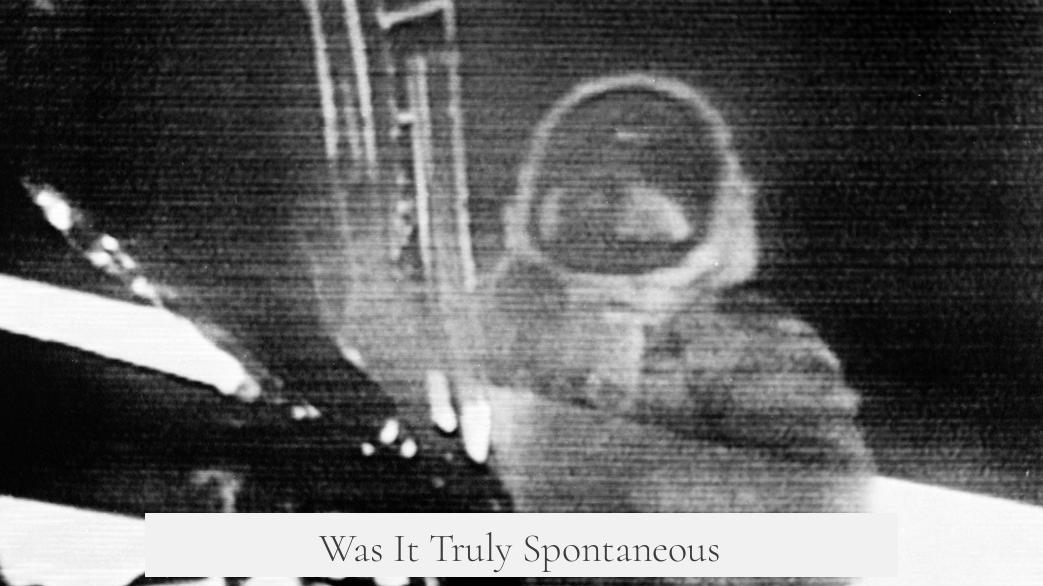
Interestingly, Neil told reporters right after the mission that he came up with the quote on the spot. Picture this: a man stepping onto the lunar surface, eyes on the vast unknown, and words flowing naturally. Feels poetic, right? But there’s a twist. Years later, Neil’s younger brother Dean Armstrong claimed Neil had actually prepared the line months ahead. In a charming sibling reveal, Dean recounted how Neil once slipped him a piece of paper with the phrase written out, asking for his opinion.
Dean’s version includes the oft-missed article “a” before “man” — which remains a hot topic for linguists and Armstrong fans alike. Neil always maintained he said “for man,” though the intended speech included “for a man,” which would make more grammatical sense. This tiny syllable sparks debates about whether the transmission was glitchy or if Neil’s calm delivery hid a pre-planned script.
Given Neil’s meticulous nature, many believe it plausible he prepared this statement in advance but downplayed it later to avoid the spotlight. Armstrong was a man who preferred actions to words and didn’t relish becoming a braggart celebrity. So, whether spur of the moment or planned, the phrase carries Neil’s essence.
Did the First Moonwalkers Get PR Orders? Yep, They Did.
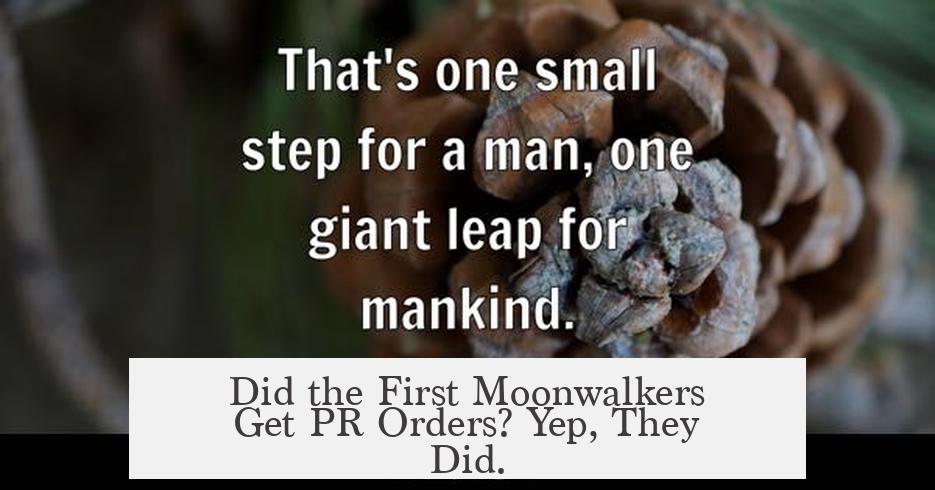
Space missions weren’t just about scientific bravery; they were also huge PR moments, carefully choreographed to avoid controversies. One fascinating tidbit involves the Apollo-8 mission, the first to orbit the moon. Commander Frank Borman read from the Book of Genesis during a live TV broadcast. This caused enough fuss that NASA decided to clamp down on religious expressions in subsequent missions.
Neil Armstrong received explicit instructions to avoid religious topics during his moonwalk. So, while the world saw Armstrong’s historic step, any spiritual remarks or acts weren’t broadcast. Buzz Aldrin, famously, quietly took communion after landing on the Moon, sharing wine and a wafer privately. This moment wasn’t televised due to NASA’s wish to steer clear of potential backlash and debates over mixing religion with space exploration.
Funny Side Note: Pete Conrad and His Moonwalk PR Bet
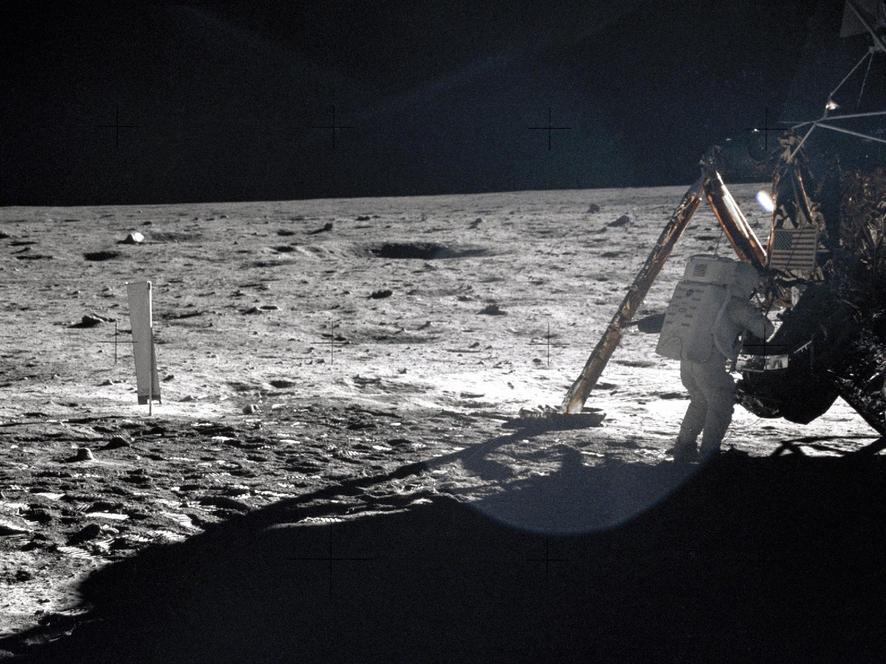
Here’s a delightful twist: Pete Conrad, commander of Apollo-12 and known for his jovial personality, was friends with Italian journalist Oriana Fallaci. She suspected that the “one small step” phrase was a scripted NASA slogan forced onto Armstrong. Pete didn’t appreciate the notion. He encouraged the idea that astronauts had freedom over their lunar words, betting $500 he would say something entirely different upon landing.
On live TV, Pete did announce, “Whoopee! Man, that may have been a small one for Neil, but that’s a long one for me.” As the shortest astronaut of his time, he made a playful jab at Armstrong’s taller stature. Whether Pete collected his bet remains a mystery lost in lunar dust, but his statement proved astronauts weren’t puppets merely reciting PR lines. They spoke from their own spirit, humor, and personality.
What Does This Tell Us?
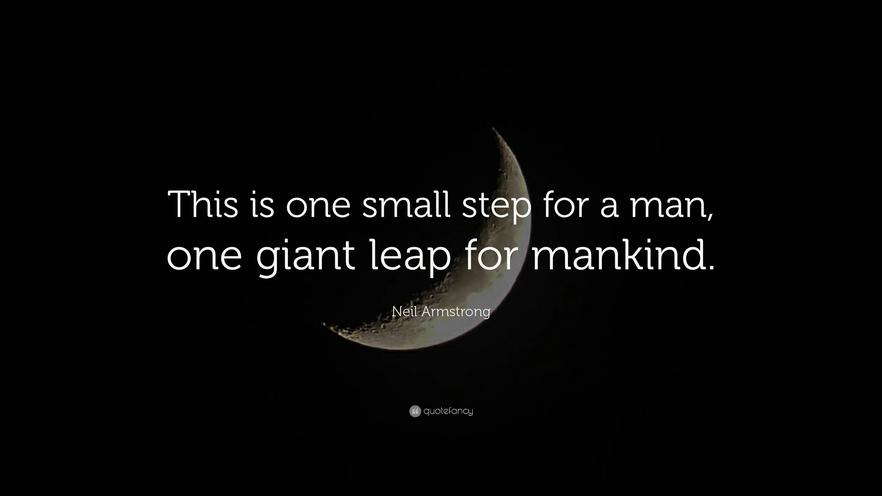
Neil Armstrong’s quote was almost certainly a brilliant blend of preparation and spontaneity. Thanks to his unique blend of thoughtfulness and humility, the line struck a chord that resonates to this day. The PR restrictions remind us that astronauts operated within a carefully controlled media environment, balancing planetary achievements with earthly sensitivities.
So next time you hear “one small step for a man,” remember it’s more than just a catchy phrase. It’s a symbol of human creativity, courage, and a subtle dance with Earth-bound expectations. And the moonwalkers? They had room to be heroes and be themselves, sprinkled with a pinch of PR guidance and a dash of personal flair.
Final Thoughts and Takeaways
- Neil Armstrong’s quote was primarily his own, born from his character and preparation.
- There is some debate about when he thought of it — on the spot or months ahead.
- Apollo astronauts had to avoid discussing religion publicly after earlier controversies.
- Buzz Aldrin’s private communion was kept off TV to dodge fallout.
- Pete Conrad proved astronauts retained their freedom to express themselves, even joking live on TV.
How often do pioneers get to write their own script when making history? Pretty often, it seems, even in the highly controlled universe of NASA. If you ever find yourself stepping into unknown frontiers, maybe take a page from Neil’s book: prepare thoroughly, speak sincerely, and don’t forget to have a little fun.
